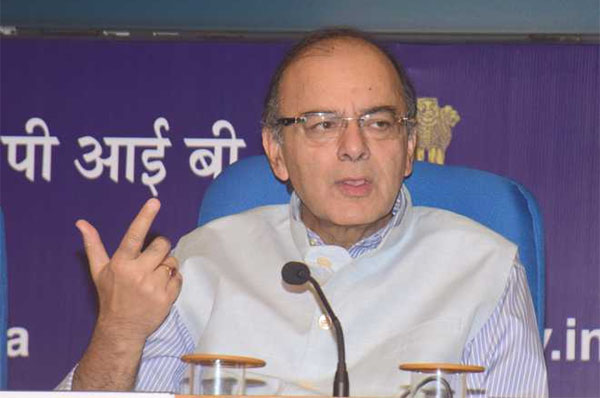-
Tips for becoming a good boxer - November 6, 2020
-
7 expert tips for making your hens night a memorable one - November 6, 2020
-
5 reasons to host your Christmas party on a cruise boat - November 6, 2020
-
What to do when you’re charged with a crime - November 6, 2020
-
Should you get one or multiple dogs? Here’s all you need to know - November 3, 2020
-
A Guide: How to Build Your Very Own Magic Mirror - February 14, 2019
-
Our Top Inspirational Baseball Stars - November 24, 2018
-
Five Tech Tools That Will Help You Turn Your Blog into a Business - November 24, 2018
-
How to Indulge on Vacation without Expanding Your Waist - November 9, 2018
-
5 Strategies for Businesses to Appeal to Today’s Increasingly Mobile-Crazed Customers - November 9, 2018
Lok Sabha to consider Constitutional Amendment Bill relating to GST next week
The GST constitutional amendment bill was finally passed by the upper house of parliament on Wednesday evening.
Advertisement
Earlier Prime Minister Narendra Modi thanked lawmakers for the passage of the GST Bill in the Rajya Sabha.
The constitutional amendment will enable both the Centre and the States to simultaneously levy the GST, which will subsume all indirect taxes now levied, including excise duties and service tax.
“The GST will support economic activity and government revenues over the medium term by removing a key hurdle to the smooth movement of goods and services, and reducing corporates’ and the government’s tax administration costs, thereby improving compliance and raising tax receipts”, it added.
“Once GST is rolled out, business would be easier”.
According to the bill, an additional tax of up to 1% will be levied on the state for the inter-state supply of goods for two years or more. At least 15 of India’s 29 states have to ratify the bill followed by the assent of the President. The Bill will now go to Lok Sabha next week.
GST is India’s most significant tax reform in decades.
The bill will help streamline India’s complicated and cumbersome taxation system and introduce a single indirect tax regime across the country.
GST is aimed at dismantling inter-state barriers to trade in goods and services by subsuming a slew of around 17 indirect taxes that include excise duty, service tax, VAT, CST, luxury tax, entertainment tax, entry tax and octroi.
This Clause remains the same as it also says that the Central GST (CGST) and the centre’s share of IGST will be distributed between the Centre and the states.
While the GST Bill, 2011, did not have a provision for compensation, the NDA government initially provided for compensation to the states fully for 3 years and then for staggered compensation for 2 years. “The efforts of the Empowered Committee of State Finance Ministers have been fruitful”. This move will also provide a higher revenue efficiency which means it will decrease the cost of collection of tax revenues, and will therefore, lead to higher efficiency.
Advertisement
Asked if Tamil Nadu will come on board for GST implementation as AIADMK members walked out of Rajya Sabha before voting on the last night, Jaitley said India has political parties which are extremely responsible.





























